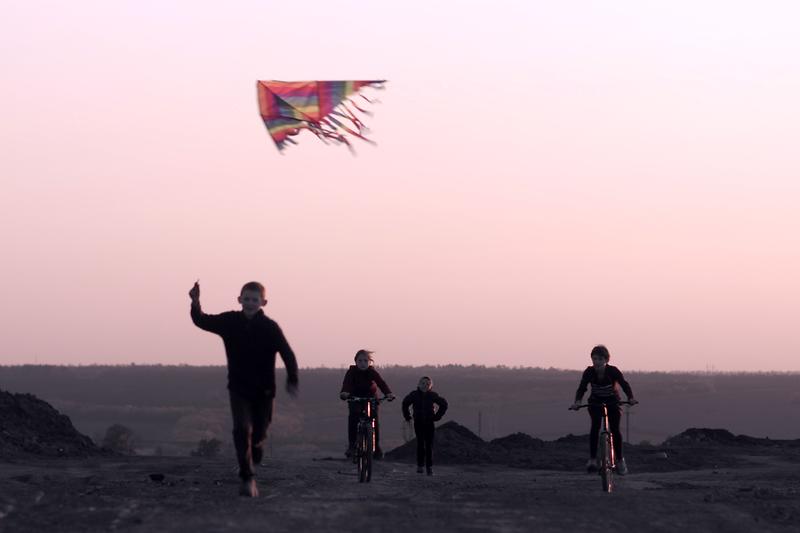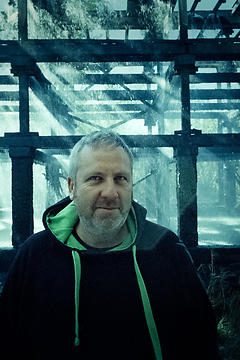
Terykony
Boney Piles

Until 2015 Toretsk was called Dzerzhynsk, named as it was in honour the founder of the Cheka, the Soviet secret police. The children Nastya, Yarik and Arseniy live in the small town which was recaptured from Russian separatists by the Ukrainian army in July 2014. They play in dilapidated or destroyed houses and collect junk. At school they sing patriotic Ukrainian songs. An intact map of the USSR still hangs on the wall in the stairwell. Nastya lost her father in the war. When she is alone, she listens to and sings Russian pop songs. Director Taras Tomenko: “The war has been going on for more than eight years, keeping people in constant, lethal danger. Children are especially at risk. There is an episode in our film showing the first day of the school year, on 1 September. Those kids who are going to school for the first time were born in wartime and haven’t seen a single day of peace.”
Glad-House/Obenkino: Original version with english subtitles
MISHA LUBARSKY
OLHA HAVRYLENKO, VOLODYMYR TRETI
ALLA ZAGAYKEVYCH

Taras Tomenko - The Ukrainian director was born in 1976 in Kyiv into the family of the poet Mykola Tomenko. His grandfather died in World War II, and his grandmother died young as a result of hard physical labor on the collective farm. Tomenko studied at the philological faculty of the National Taras Shevchenko University in Kyiv and at the National University of Theater, Film and Television IK Karpenko-Kary in Kyiv.
Taras Tomenko, has been working on the subject since the outbreak of the Donbass war in 2014 and has collected a large number of testimonies and other material.